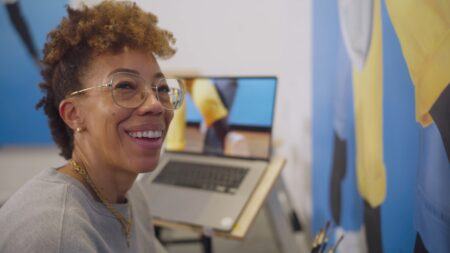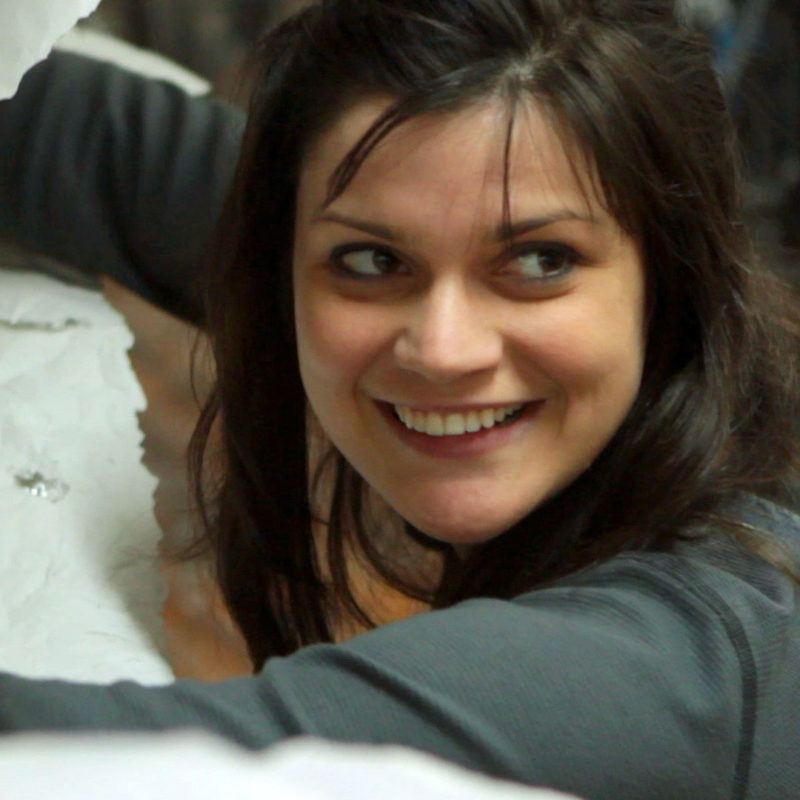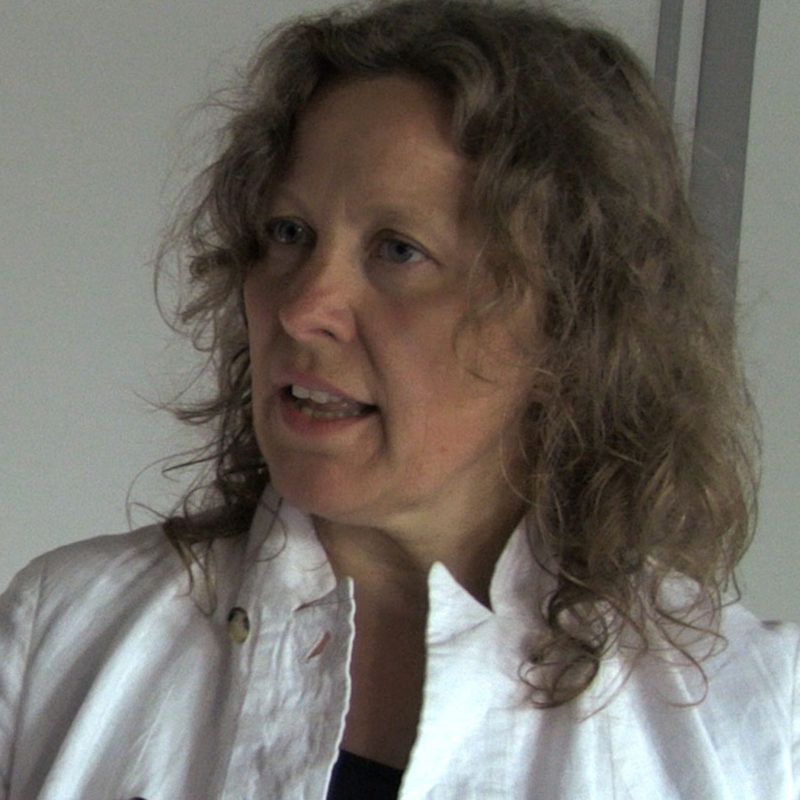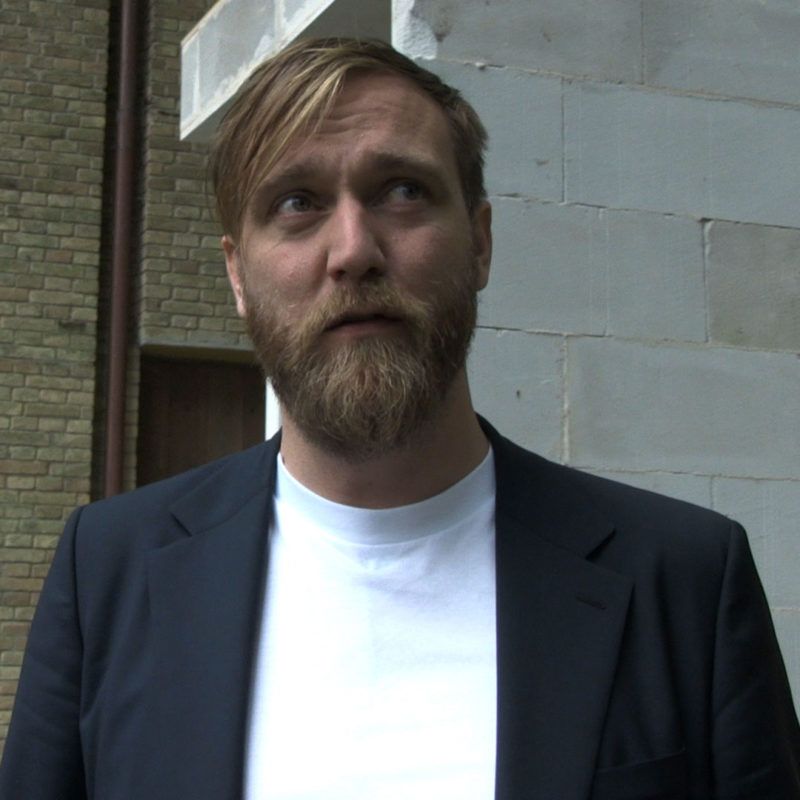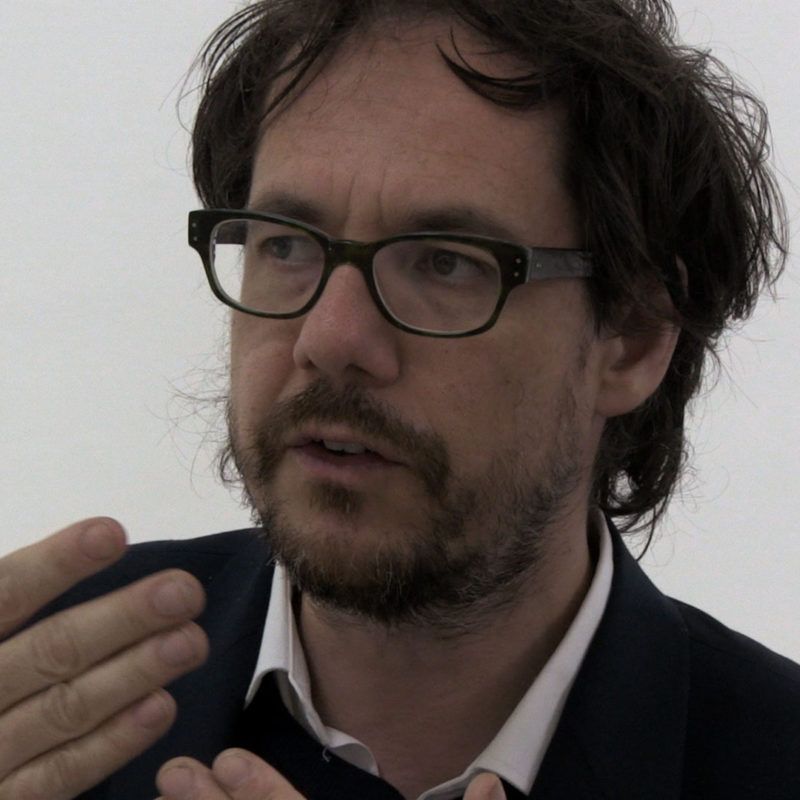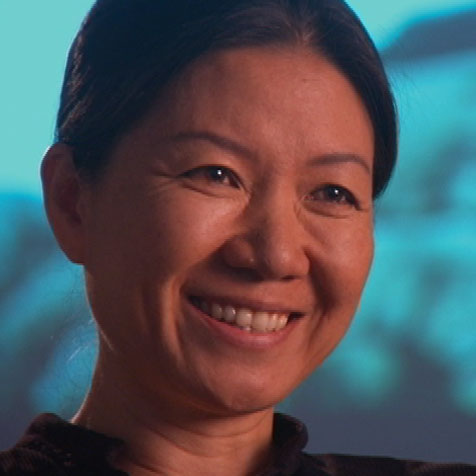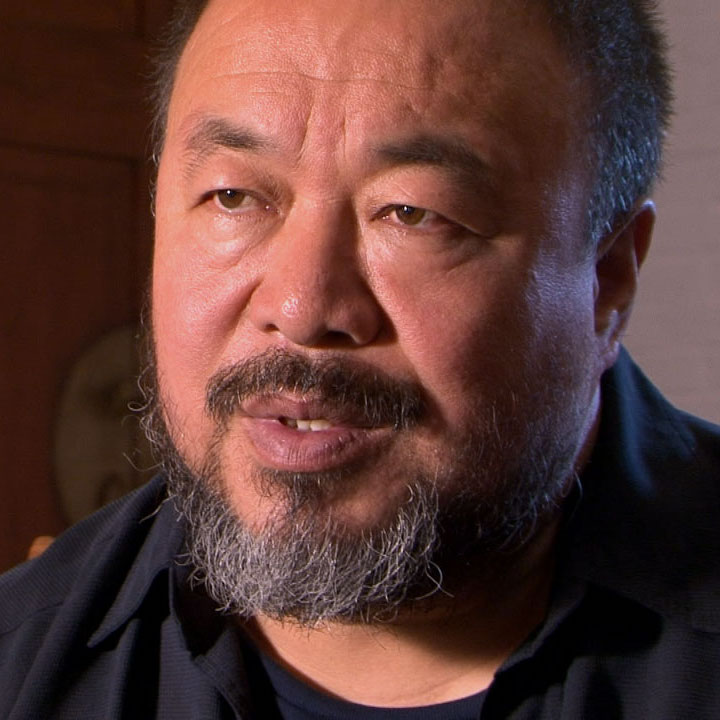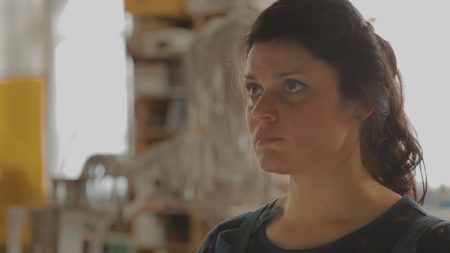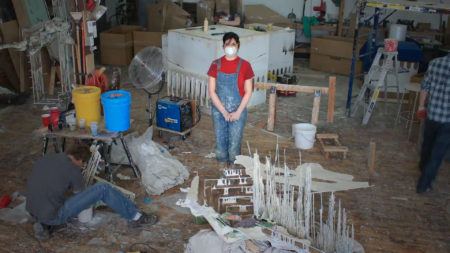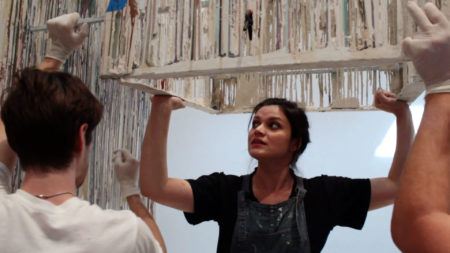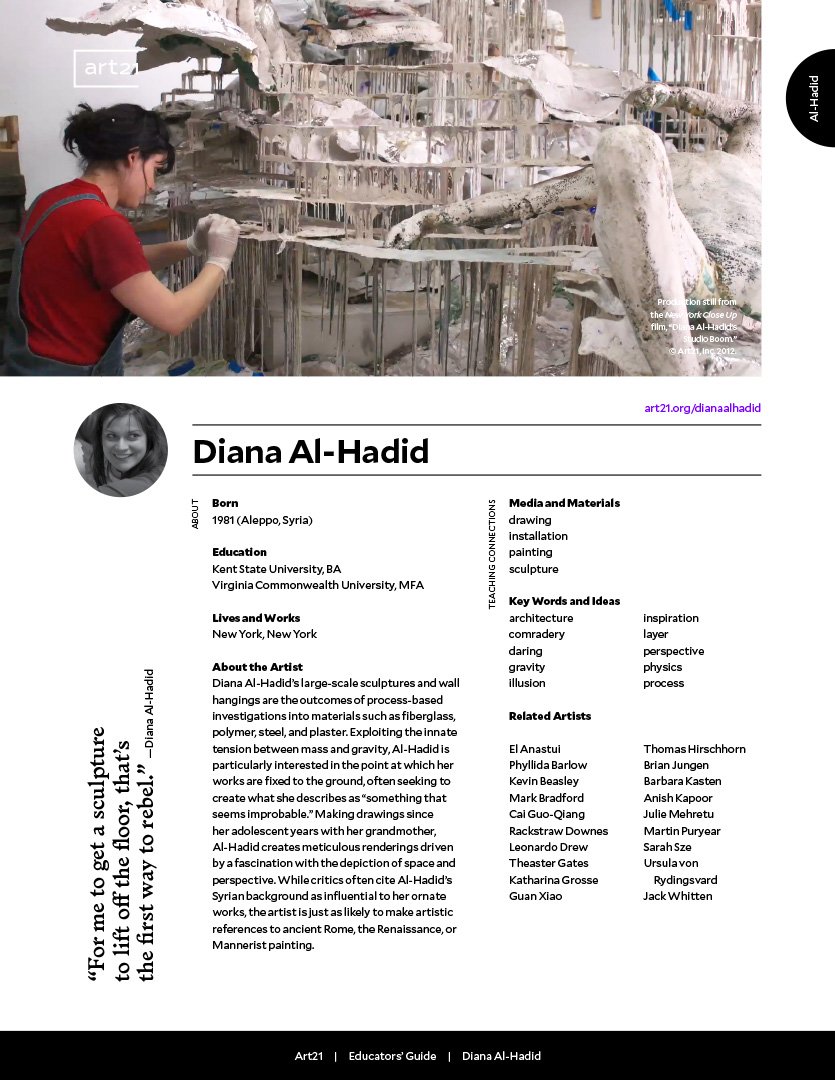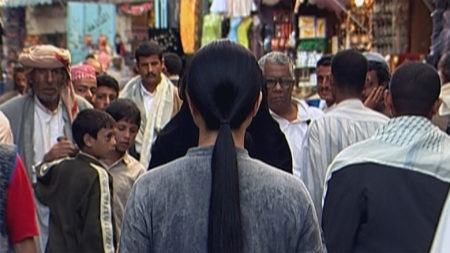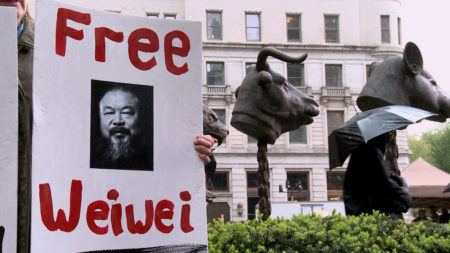Continue playing
(Time remaining: )
Play from beginning
Continue playing "{{ controller.videos[controller.getVideo(controller.currentVideo)].segmentParentTitle}}"
{{controller.videos[controller.getVideo(controller.currentVideo)].title}} has ended.
Diana Al-Hadid at the 55th Venice Biennale
Brooklyn-based artist Diana Al-Hadid travels to the 55th Venice Biennale, where she tours the exhibition and speaks candidly with five of her peers about their work. “It is fascinating to see what problems other artists are solving,” says Al-Hadid, “and what curiosities they’re pursuing that sometimes feel very similar to the curiosities [I’m] pursuing.”
In Venice, she interviews artists Jesper Just, Kimsooja, Mark Manders, and Katrín Sigurdardóttir. Back in Brooklyn, Al-Hadid video chats with fellow Art21 artist Ai Weiwei who is prohibited from leaving China; their conversation is accompanied by footage of Ai’s collateral exhibition in Venice.
More information and creditsCredits
Artist to Artist Created & Produced by: Ian Forster. Director: Susan Sollins. Editor: Morgan Riles. Cinematography: Stephanie Andreou, John Martin, Wesley Miller, & Jared Schiller. Sound: Ian Forster & Jared Schiller. Production Assistant: Joanne Dawson. Composer: Henry Terepka. Images courtesy: Diana Al-Hadid. Artists: Ai Weiwei, Diana Al-Hadid, Jesper Just, Kimsooja, Mark Manders, & Katrín Sigurdardóttir. Thanks: The Venice Biennale & Massimiliano Gioni. An Art21 Workshop Production. © Art21, Inc. 2013. All Rights Reserved.
Closed captionsAvailable in English, German, Romanian, Italian, Japanese, Korean, Chinese, Italian
Through the Art21 Translation Project, multilingual audiences from around the globe can contribute translations, making Art21 films more accessible worldwide.
Interested in showing this film in an exhibition or public screening? To license this video please visit Licensing & Reproduction.
Diana Al-Hadid was born in 1981 in Aleppo, Syria. She was raised in Cleveland, Ohio, and currently lives and works in New York. Al-Hadid’s large-scale sculptures and wall hangings are the outcome of process-based investigations into materials, including fiberglass, polymer, steel, and plaster. Exploiting the innate tension between mass and gravity, Al-Hadid is particularly interested in the point at which her works are fixed to the ground, often seeking to create what she describes as “something that seems improbable.”
Katrín Sigurdardóttir was born in 1967 in Reykjavik and lives and works in New York. With a background in filmmaking and painting, the artist now works in sculpture and installation, creating works that challenge ideas of space, memory, and perception.
Jesper Just was born in 1974 in Copenhagen, and he lives and works in New York. A visual artist who employs cinematic conventions, Just works primarily in film and occasionally in performance.
Mark Manders was born in 1968 in Volkel, the Netherlands. He now lives and works in Ronse, Belgium. Manders’ works in sculpture and installation are often described as surreal, haunting, and enigmatic.
Kimsooja’s videos and installations blur the boundaries between aesthetics and transcendent experience through their use of repetitive actions, meditative practices, and serial forms. In many pieces, everyday actions—such as sewing or doing laundry—become two- and three-dimensional or performative activities. Central to her work is the “bottari,” a traditional Korean bed cover used to wrap and protect personal belongings, which Kimsooja transforms into a philosophical metaphor for structure and connection. While striking for their vibrant color and density of imagery, Kimsooja’s works emphasize metaphysical changes within the artist-as-performer as well as the viewer.
An outspoken human rights activist, Ai Weiwei infuses his sculptures, photographs, and public artworks with political conviction and personal poetry, often making use of recognizable and historic Chinese art forms in critical examinations of a host of contemporary Chinese political and social issues. In his sculptural works he often uses reclaimed materials—ancient pottery and wood from destroyed temples—in a conceptual gesture that connects tradition with contemporary social concerns. He also employs sarcasm, juxtaposition, and repetition to reinvigorate the potency and symbolism of traditional images and to reframe the familiar with minimal means.
“The amazing thing about the Venice Biennale is that the whole art world focuses on this ancient and beautiful city. This incredibly poetic city, and all of it’s really eccentric little nooks and crannies, become a playing ground for artists.”
Diana Al-Hadid
Diana Al-Hadid
Educators' Guide: Diana Al-Hadid
The questions and activities included in this guide are recommendations for incorporating Art21 films featuring Diana Al-Hadid into your classroom.
Kimsooja
Kimsooja
Ai Weiwei
Ai Weiwei
Ai Weiwei
